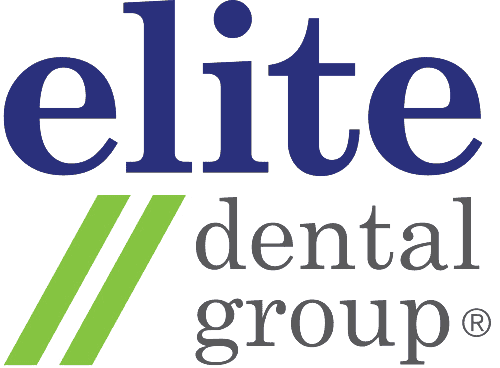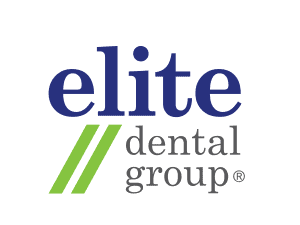11 Nov What Is The Best Teeth Whitening Solution?
Introduction
Dentists usually see patients who are not willing to visit them. The only time patients actually enjoy visiting the dental clinic is for one of two things – teeth whitening or a smile makeover with dental veneers.
If you have landed on this article, you might be interested in undergoing teeth whitening treatment. You might also be in the midst of comparing using a take-home whitening kit or heading in to a dentist for chairside whitening treatment. You could also be looking to do teeth whitening at a cosmetic outlet.
Whether you are in between options or just curious about teeth whitening, this article has been written not to endorse any teeth whitening brand or method, but to help you understand:
- What teeth whitening is;
- How teeth whitening solutions work;
- Why certain teeth whitening solutions do not work;
- What the best teeth whitening solution is;
- How you can use teeth whitening to enhance the appearance of your teeth.
What is teeth whitening?
Teeth whitening is a treatment that uses safe chemicals like carbamide peroxide and hydrogen peroxide to break up stains on and within the teeth.
An analogy that I like to use for teeth whitening is bringing a car that has gone through muddy terrain to a car wash – mud residue is washed away leaving you with a cleaner looking version of your car.
Is teeth whitening the same as teeth bleaching?
Whitening the teeth is the goal that both teeth whitening and teeth bleaching will achieve.
Although often used interchangeably, teeth whitening is not the same as teeth bleaching. However, among dentists and product descriptions, teeth whitening is usually the default term used to describe both teeth whitening and bleaching.
Teeth whitening is a whitening process that removes stains from your teeth to restore your teeth back to its natural color. Your natural colored teeth might not be advertorial white, but an off-white. Products like toothpaste and mouth rinses can sometimes contain whitening agents that can reduce discoloration of your teeth or remove surface stains.
If you have mild stains on your teeth, it might not be necessary to head in for a professional teeth whitening session. You can simply include products that contain teeth whitening agents to remove surface stains.
Teeth bleaching on the other hand, is whitening teeth beyond its natural color. Bleaching agents like hydrogen peroxide and carbamide peroxide are used to bleach your teeth to a perfect shade of white.
How safe is teeth whitening?
Teeth whitening is usually an extremely safe procedure if done correctly with the right tools and materials used. In fact, professional teeth whitening procedures are usually done with little to no risk. This is because professional teeth whitening takes into account the general health of your oral hygiene as well as your gum health before committing to any teeth whitening procedure.
Some steps that are taken before teeth whitening at a dentist include:
- A thorough dental screening and examination, and
- Scaling and polishing OR
- Guided Biofilm Therapy (GBT)
That is not to say that teeth whitening has no side effects. Some potential side effects of teeth whitening can include:
- Teeth sensitivity
- Gum sensitivity
- Gum irritation
If you have chosen to purchase or self-administer teeth whitening products that are not purchased from a dental clinic, it would be best to take note of the following:
- Avoid products that contain more than 0.1% hydrogen peroxide as these products are not meant to be sold direct-to-consumers and can cause potential gum inflammation and teeth corrosion;
- Exercise caution when purchasing too-good-to-be-true products online as potent ingredients and low-quality products can harm your teeth;
- If you are experiencing adverse reactions to products purchased from a vendor, stop using the product immediately and seek professional assistance from a dentist.
What can teeth whitening do?
If you are asking the following questions, you have come to the right dental resource:
- How do I get rid of tooth stains fast?
- How do I get rid of yellow teeth?
- How do I reduce tooth stains?
Although teeth whitening is usually known as a cosmetic procedure, it would be wise to take note that having yellowed teeth can be a sign of other general and health conditions. These can include:
- Aging
- Genetics
- Consumption of certain medications
Whether you are interested in getting rid of stains left behind by coffee or soda drinking, or nicotine stains from smoking, teeth whitening can remove most surface stains, otherwise known as extrinsic stains. However, more rigorous teeth whitening that removes both intrinsic and extrinsic stains can only be performed via professional chairside teeth whitening by dentists or oral health therapists.
Recommended treatment for intrinsic and extrinsic stains
| Intrinsic Stains | Extrinsic Stains | |
| Recommended Treatment | Take-home professional whitening kits or professional chairside whitening | Whitening strips, over-the-counter whitening products, take-home professional whitening kits |
| Causes | High exposure of fluoride | Nicotine stains caused by smoking or vaping |
| Medication usage such as tetracycline and antibiotics | Consumption of tannin-heavy foods or foods that can darken or yellow teeth | |
| Developmental disorders | ||
| Tooth decay | ||
| Tooth restorations | ||
| Root canal problems | ||
| Dental trauma |
Can teeth whitening get rid of all stains?
It is usually possible for teeth whitening to get rid of most stains, but this depends on the whitening process used and the type of stain you have. The following are some of the available teeth whitening solutions ranked in no particular order:
- Whitening toothpaste
- Whitening strips
- Over-the-counter teeth whitening solutions
- Professional teeth whitening gel
- Chairside teeth whitening
Based on prior patient feedback, whitening toothpaste usually works well on mild external stains from foods that darken or yellow the teeth. For harsher and tougher stains, professional chairside teeth whitening is recommended. At Elite Dental Group, our chairside teeth whitening uses Zoom whitening – a clinically proven safe teeth whitening solution that can eliminate teeth stains and lighten your teeth by up to 8 times in 45 minutes.
Can teeth whitening work on dental veneers or dental implants?
It is important to note that teeth whitening solutions only work on natural teeth, and will not work on dental veneers, dental implants or crowns. Should you have stains on any teeth replacement alternatives, the best way to get rid of them would be to ask your dentist for professional help. This can involve either a scaling and polishing session or a more intensive but gentle cleaning alternative like Guided Biofilm Therapy (GBT). For those with veneers, a replacement might be issued.
There are patients who approach me about the color disparity between their crowns and their natural teeth. As crowns do not get discolored, you might find that your natural teeth do not match your crowns with time. If your teeth do not match the color of your crowns and that is a cause for concern for you, you might want to whiten your teeth to match the color of your crowns.
What is the best teeth whitening solution for stained teeth?
There is no such thing as the best teeth whitening solution as each of them have their pros and cons. However, a good teeth whitening solution would take into consideration the following factors:
-
- The concentration of bleaching solution;
- The safety of the bleaching solution during administration;
- No to little side effects;
- The longevity of the teeth whitening solution on teeth.
Can I do DIY teeth whitening?
There is no hard-no on DIY teeth whitening, but this is once again dependent on the type of DIY teeth whitening as well as the provider of the DIY teeth whitening solution.
I have seen patients who were drawn in by the allure of quick home DIY teeth whitening solutions or unregulated cosmetic businesses that promise to reduce stains instantly with an unbelievably low cost. While I cannot speak for all whitening solutions, many of these solutions can turn out to be more costly than heading to a professional teeth whitening session due to ineffectiveness. These solutions can even turn out to be dangerous and toxic.
Some of the immediate side effects include:
- Burning of gums
- Gum inflammation
- Weakened teeth
- Discolored teeth
- Damaged teeth enamel
I often liken making a decision on teeth whitening solutions to making a decision on a delivery carrier for a fragile and expensive item. You would not knowingly select the cheapest delivery option that is uninsured for an expensive and fragile item. The same applies for teeth whitening. Choosing the cheapest option administered by non-professionals can result in potentially detrimental results.
Should you wish to lighten your teeth, here are some better options that have been clinically proven and tested for effectiveness and safety.
Common effective teeth whitening methods
Take-Home Teeth Whitening Kits
Take-home teeth whitening kits can usually be purchased at a store, over the counter or at a dentist for use at home. Take-home whitening kits contain the lowest measure of bleaching agents and are usually used for simple stain removals.
Take-home whitening kits that are purchased at a dentist contain a higher concentration than that of over the counter products. These dentist-approved products usually cost about $399 – $699 and last about 6 months.
Professional Teeth Whitening
Professional teeth whitening that is done in a dental clinic can help you achieve the optimal standard of teeth whitening that lasts the longest. This is due to the levels of concentration that dentists or oral health therapists are allowed to administer. The process uses the highest-concentration of bleaching agents that can enhance the longevity of your teeth whitening treatment.
Many dental clinics in Singapore use Zoom whitening to whiten teeth. Zoom whitening can range from $950 to $1,200 depending on the current state of your dental care.
There are more affordable options like BlancOne that are priced from $120 – $399 at dental clinics. These solutions, however, require more sessions due to its lower bleaching concentration but might be suitable for you if you do not have heavy stains or intrinsic discolouration on your teeth.
Why is professional teeth whitening so expensive?
The reason why professional teeth whitening usually costs more is because of the following reasons:
- The current condition of your teeth and extent of discoloration
- The experience of your dentist who is administering the treatment
- The number of sessions needed for teeth whitening treatment
- The preparation and aftercare of your teeth whitening treatment based on your current dental condition
Why should I visit a dentist for professional teeth whitening?
Whilst it is possible to use over-the-counter solutions for some forms of teeth discoloration and staining, the only solution that works for both intrinsic and extrinsic staining is professional chairside whitening done by a dentist or oral health therapist.
There are no regulations against non-dental professionals rendering teeth whitening solutions. However, it must be noted that non-professional teeth whitening solutions that are sold or administered in Singapore contain a concentration of less than or equal to 0.1% of hydrogen peroxide or similar forms of chemicals. Professional teeth whitening that is administered by dentists or a dental clinic, on the other hand, can contain more than 0.1% of hydrogen peroxide. At Elite Dental Group, Zoom teeth whitening contains 25% hydrogen peroxide, while our BlancOne teeth whitening solution contains 5.6% hydrogen peroxide.
Professional teeth whitening is non-invasive, which means that there is no need for drilling or anesthesia. There is no pain or discomfort involved in professional teeth whitening as proper steps are taken to protect the gums and teeth from the bleaching agent. The same cannot be said for cosmetic or beauty therapists who administer teeth whitening treatments.
Alternatives to teeth whitening
Should you be on the lookout for more permanent teeth whitening alternatives, there are a few options available. While these options might not seem as cost-friendly as teeth whitening, the permanence of the solution might yield long-term cost benefits.
Dental bonding
Dental bonding is a reversible cosmetic procedure that can be used to enhance your smile. Dental bonding uses a tooth-coloured composite resin to repair chips and close up gaps. It can even be used to change the shape and color of your teeth. The cost of dental bonding ranges from $300 to $600 per tooth, depending on the area which requires the bond.
Dental veneers
Dental veneers is a cosmetic procedure that can recreate the look of your teeth and smile. There are two types of dental veneers – composite and ceramic. The veneers are adhered directly onto your existing teeth to improve the appearance of your teeth. Many patients who have more stubborn staining prefer to go for dental veneers instead of teeth whitening. Dental veneers cost between $900 – $2,800 per tooth, depending on the type of veneers used.
Dental crowns
Dental crowns are usually used to replace teeth that have intrinsic stains. These stains can be a result of dental trauma. A dentist will reshape the damaged teeth and apply a dental crown to the tooth. This enhances the strength, functionality and appearance of the original tooth. Dental crowns cost between $2,000 – $2,600 per tooth.
Conclusion
Teeth whitening can be a great first step in getting the teeth that you want. There are many options available for teeth whitening and it would be wise to tweak your choices based first on the safety of the solution, then on your expected outcome.
There is really no such thing as the best teeth whitening solution, only the safest and the most durable solution. When considering teeth whitening options, it is important to understand that the concentration of the bleaching solution matters as does the manner in which it is administered.
For those who are on the fence about teeth whitening because of its impermanence, it is possible to consider other options such as dental bonding, dental veneers and dental crowns.




